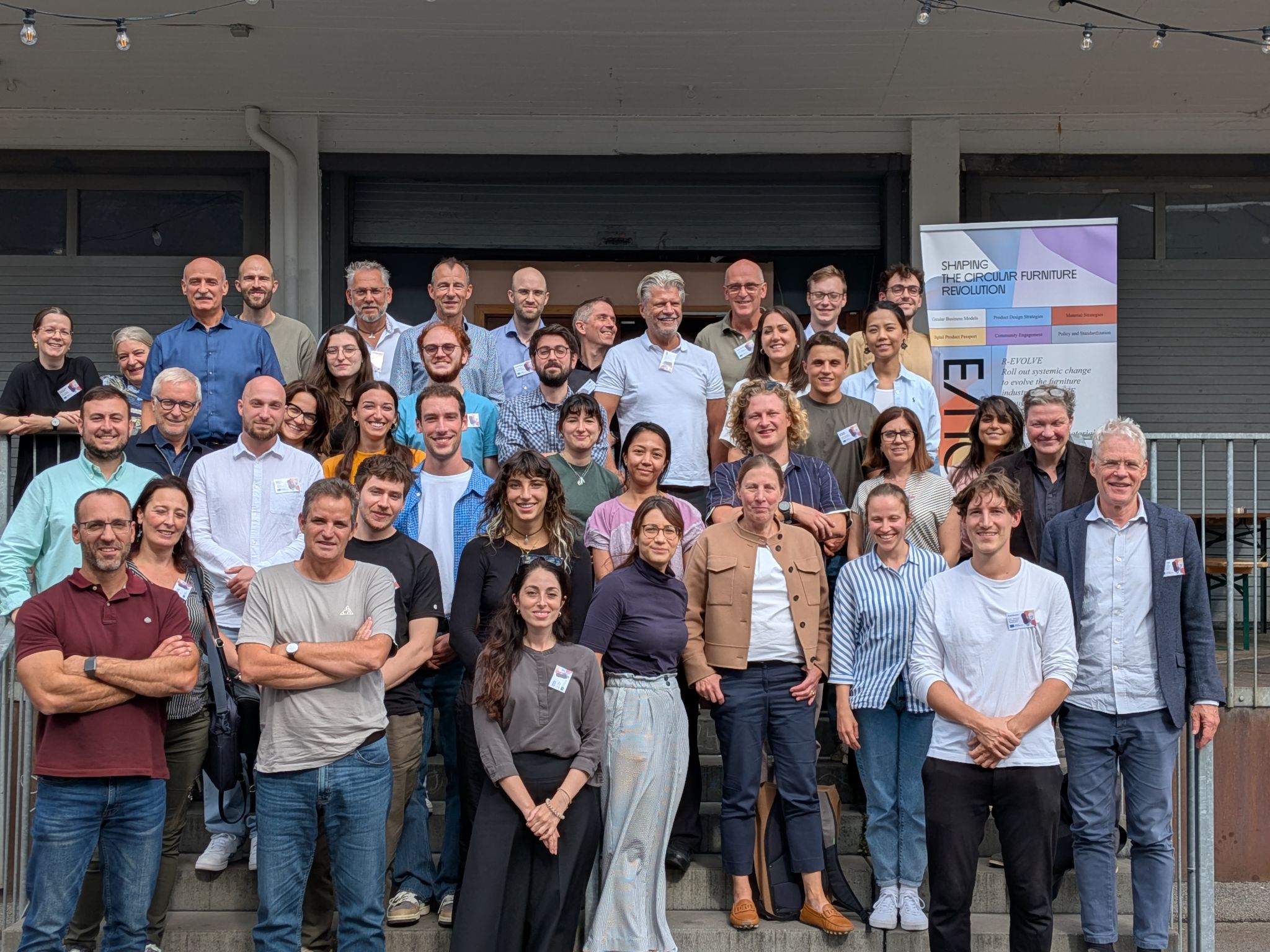
- This event has passed.
R-evolve Innovation Camp: pioneering innovative and sustainable actions in the furniture Industry
September 11 @ 08:00 – 17:00

Copenhagen, Denmark, September 11th – The R-evolve Innovation Camp, part of the Horizon Europe project, has successfully concluded, uniting stakeholders from across the furniture sector to explore innovative strategies in sustainability, data utilization, and circular economy business models (CEBMs). Hosted at H15 in Copenhagen, this three-day event served as a platform for cross-competent teams to share knowledge and kick off testing new CEBMs, circular design strategies, and the Digital Product Passport (DPP) through nine innovative piloting projects.
The camp commenced with an emphasis on transforming data from a mere cost into a valuable asset for businesses. Participants engaged in dynamic discussions about the DPP, a tool that not only enhances transparency but also opens new avenues for developing innovative circular economy business models. This shift goes beyond compliance with emerging regulations, positioning the DPP as a strategic advantage that can drive significant positive impact within the industry.
Aligned with the new European regulation on sustainable design, which mandates that products must be conceived with sustainability in mind throughout their lifecycle, the R-evolve project aims to support the EU’s Green Deal objectives. By integrating these regulatory frameworks, the camp highlighted the critical need for the furniture sector to innovate and adapt in order to reduce environmental impact and promote circularity.
As the event progressed, participants engaged in in-depth dialogues addressing the challenges of adopting DPPs in the furniture industry. Strategies for stakeholder engagement and promoting sustainable practices were explored, with a strong emphasis on empowering consumers through informed choices and enhanced transparency.
The second day featured hands-on workshops led by scientific partners, where teams examined product characteristics and identified key attributes for improvement. By disassembling products, participants gained insights into materials and design structures, emphasizing the importance of collaboration with industry partners. This practical approach facilitated validation of findings and aimed at redesigning products for easier disassembly and reassembly.
As the Innovation Camp concluded, teams showcased their insights and design strategies, reinforcing the camp’s mission to create sustainable and innovative solutions for the furniture industry. The event not only highlighted the commitment of participants to a greener future but also set the stage for actionable next steps.
Moving forward, the R-evolve project will continue to advance sustainable and circular practices, focusing on modular solutions and innovative business models that prioritize environmental responsibility. The integration of insights gained from the Innovation Camp will guide the development of concrete strategies that engage both political and strategic stakeholders and industry players alike. Together, we can reshape the furniture sector and lead the charge toward a sustainable future.



















